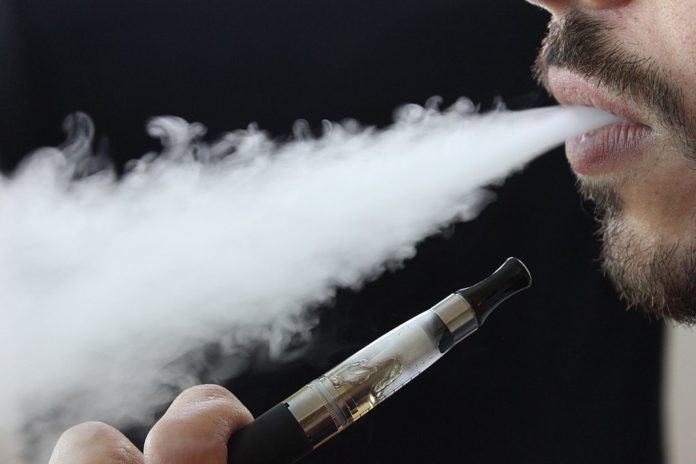Exposure to flavoured e-cigarette exacerbates dysfunction of cells lining various organs and inflammation – often precursors to heart disease
A new study on endothelial (cell lining) stem cells, published in the Journal of the American College of Cardiology, found acute exposure to flavored e-liquids or e-cigarette use exacerbates endothelial cell dysfunction, This often precedes heart disease.
Endothelial cells are the main type of cell found in the inside lining of blood vessels, lymph vessels and the heart.
The researchers used pluripotent stem cells-derived endothelial cells (iPSC-ECs) from three healthy individuals and a subject population consisting of five healthy non-smokers, five active cigarette smokers, two dual users of e-cigarettes and cigarettes, and two sole users of e-cigarettes. All participants were healthy and free of any major cardiovascular risk factors. The researchers examined the effects of e-liquids on endothelial cell viability by treating the iPSC-ECs with a dilution of six commercially available e-liquids at varying nicotine concentrations. They found all six flavored e-liquids had varying effects on cell survival and observed the presence of pro-inflammatory markers that are known to play a critical role in the development of vascular disease.
The researchers observed the fruit-flavored, sweet tobacco with undertones of caramel and vanilla-flavored, tobacco-flavored Red Oak Tennessee Cured, and sweet-flavored Butter Scotch all had moderate toxic effects on the cells, with the strongest toxic effect coming from the cinnamon-flavored Marcado
The researchers observed the fruit-flavored, sweet tobacco with undertones of caramel and vanilla-flavored, tobacco-flavored Red Oak Tennessee Cured, and sweet-flavored Butter Scotch all had moderate toxic effects on the cells, with the strongest toxic effect coming from the cinnamon-flavored Marcado. They also found menthol tobacco-flavored Tundra had a strong toxic effect at 1 percent dose of concentration with or without nicotine.
The researchers performed other tests to examine endothelial function in iPSC-ECs after the addition of e-liquids and serum from e-cigarette users, and the effect of acute e-cigarette use and cigarette smoking on serum nicotine levels, among others.
“Although limited by a small sample size, our data suggest that e-cigarette use can lead to acute endothelial dysfunction, which we validated by in vitro exposure to either e-liquid or serum derived from patients using e-cigarettes,” said Joseph C. Wu, MD, PhD, professor and director of the Stanford Cardiovascular Institute at the Stanford School of Medicine and the study’s senior author. “E-cigarette use in the U.S. and worldwide is rapidly increasing with growing concerns from the scientific, public health and policy making communities. Our findings are an important first step in filling this gap by providing mechanistic insights on how e-cigarettes cause endothelial dysfunction, which is an important risk factor for the development of heart disease.”
A study presented at the American College of Cardiology’s Annual Scientific Session had found that adults who report puffing e-cigarettes, or vaping, are significantly more likely to have a heart attack, coronary artery disease and depression compared with those who do not use them or any tobacco products.


